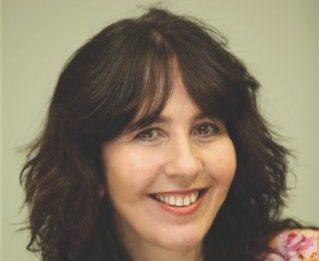click to dowload our latest edition
CLICK HERE TO SUBSCRIBE TO OUR NEWSLETTER


Published
4 years agoon
By
adminPETA KROST MAUNDER
More than that, our old normal is gone and isn’t coming back in a long, long time – if ever.
Who would have imagined our children, donning masks over their mouths and noses and lining up two metres apart to have their temperature checked before being allowed into school? It always used to be that you had to have a doctor’s note not to go to school, now you have to prove you are 100% well to be allowed in.
I can’t imagine what it must be like trying to teach while wearing a mask, let alone learn from a masked educator. Just how will younger kids manage to avoid running around, kicking a ball to one another, and getting into some roughhousing? That’s what kids – particularly boys – do. But educators say that the children who have gone back to school this week have adapted very quickly to this “new normal”.
This isn’t just about a pandemic and how we have to behave to ensure it kills as few of us as possible. The lockdown – which most countries have implemented – has had a massive impact on every one of us.
It has pushed us into our homes and somehow into our own minds, stimulating intense reactions. For some, it’s resistance to obeying the laws that curtail our freedom, and finding fault in what the government or our president says.
Who would have thought that the sale of cigarettes and alcohol, and opening houses of prayer could become such huge points of argument?
For some, it has been a time of realising that we need change – our lives as we know it aren’t how we want to live from now on. This refers to marriages, careers, where we live, among a myriad of other life decisions.
We went into lockdown quite content with our situation, and will come out the other end needing something quite different. Some people have started running when they didn’t do so before. They have given up alcohol or cigarettes because it makes sense. I could go on.
However, this is on a totally personal, individual level.
On a national and international level, there is deep discord in the United States, where racism and police brutality has escalated into national riots. The situation has effectively become bigger than COVID-19 in that country.
I watched the video of George Floyd being murdered by a police officer with his knee on his throat while other officers watched. The officer ignored the man begging to breathe. It was horrific and inhumane. I’m not surprised at the reaction it has received around the country by all those who abhor racism and police brutality.
The worst part about that cold-blooded murder was that the perpetrator and his cronies are meant to protect people, not kill them. These are the people to whom the government gives a badge, allowing them to protect, serve, and ensure the security of citizens. But these policemen thought they were above the law and could do whatever they felt was necessary to a man who – at most – may have used a single fake note. He didn’t even get his day in court to prove otherwise.
Now, all this isn’t unfamiliar to us on the southern tip of Africa. We understand racism. It permeated every part of this country, and was law until 1994. It wasn’t that long ago when such incidents may have gone unreported in South Africa because black lives weren’t considered by the government as important as white lives.
Can I say while that isn’t the reality in South Africa today, the behaviour of our police is far from exemplary. I’m not going to tar every police officer with the same brush. I know there are exceptional policemen and women.
However, far too many people have died at the hands of the police since the start of the lockdown, and others, brutalised by the police, have escape with little more than their lives.
Collins Khosa, Petrus Miggels, Sibusiso Amos, and Adane Emmanuel may just be names to you, but each one of them died after being harmed by people who should have been protecting them.
Khosa died after allegedly being assaulted by soldiers in Alexandra. He was beaten for supposedly breaking lockdown regulations. Some people are calling him our George Floyd.
Miggels, too, died after allegedly being beaten by police who picked him up after he bought alcohol during level four. Amos was gunned down at his home in Vosloorus at the end of March during a lockdown operation that involved members of the Ekurhuleni Metro Police Department.
While none of these cases are apparently clear cut, and most are still under investigation by the Independent Police Investigative Directorate, it’s an indication of way too much violence by security forces.
The question is, where does one turn if the very people who are meant to protect us are the aggressors? What does this say about a country?
I know that for many of us, this is far from our realm of understanding as we live in the suburbs and it isn’t our everyday reality. But we have to be careful that our new COVID-19 reality, and what we will get used to after the virus has left us, is better than what we had before, not worse.
We can’t accept security force brutality against civilians. It wasn’t acceptable during apartheid, and it certainly isn’t in 2020.
While we all do some soul searching and contemplate better lives for ourselves individually and as a group, let’s make sure that our reality doesn’t include violence on any level.
It’s incumbent on us to make sure our government and security forces know this isn’t acceptable – ever!
Shabbat Shalom!
